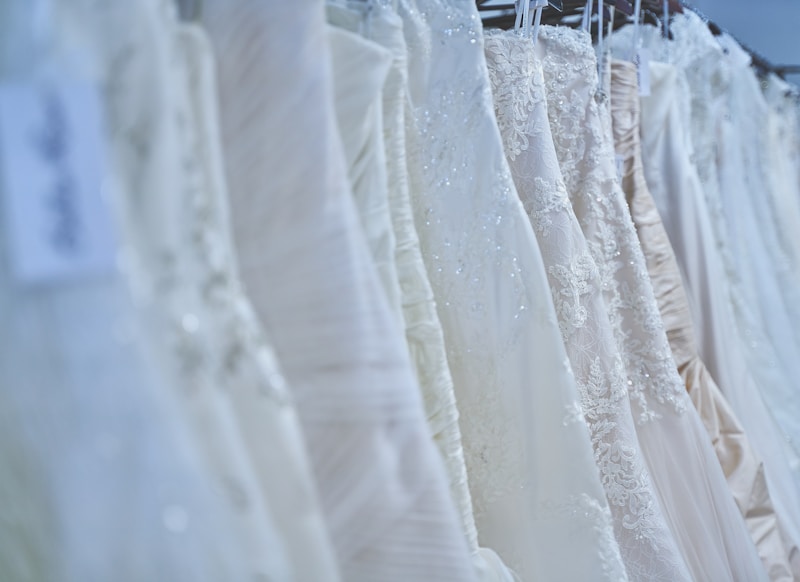Essential Guide to Acquiring Necessary Permits for New Bridal Stores
Essential Guide to Acquiring Necessary Permits for New Bridal Stores
Understanding the Importance of Permits for Bridal Stores
Starting a new bridal store can be both an exciting and daunting venture. However, one of the most critical aspects that aspiring entrepreneurs often overlook is the necessity of obtaining the right permits and licenses. This article will guide you through the essential permits required for opening a bridal store, along with important considerations and tips to help you navigate the legal landscape.
The Regulatory Landscape for Bridal Stores
Every business, including bridal stores, must comply with local, state, and federal regulations. The requirements can vary significantly depending on your location. To ensure that your bridal store is legally compliant, you must focus on the following key areas:
| Permit Type | Description |
| Business License | Required to operate a business legally in your city or county. |
| Sales Tax Permit | Necessary if you plan to sell taxable goods, including wedding gowns and accessories. |
| Health Permits | If you offer services such as tailoring, check if you need health permits. |
| Signage Permit | Required if you plan to display a sign for your store. |
| Building Permits | Needed if you are renovating or constructing your bridal store location. |
Step-by-Step Process to Acquire Necessary Permits
Step 1: Research Local Regulations
Before you proceed with your bridal store plans, familiarize yourself with the local regulations in your area. Each state may have unique laws governing retail businesses, especially in metropolitan areas like New York City or Los Angeles. Utilize online resources, or consult your local chamber of commerce for guidance on specific requirements.
Step 2: File for a Business License
A business license is typically the first step in the permitting process. This license confirms that you are operating legally within your jurisdiction. To obtain this license, you will often need to provide your business name, address, and information about any partners. Check with your local government’s business licensing office for the application process and associated fees.
Step 3: Apply for a Sales Tax Permit
In most states, you will need a sales tax permit to collect sales tax from customers. Bridal stores typically sell taxable goods such as wedding dresses and accessories, making this permit essential. You can usually apply for a sales tax permit through your state’s department of revenue or taxation.
Step 4: Ensure Compliance with Health Regulations
If your bridal store provides alteration services, it’s crucial to comply with local health regulations. This may include having inspections of your work areas and ensuring that you meet sanitary standards. Again, the requirements can differ greatly by location, so checking with local health departments is vital.
Step 5: Secure Necessary Signage Permits
Many municipalities require a permit for outdoor signage to ensure that it’s compliant with local advertising regulations. For instance, if you're in a downtown area, there might be restrictions on dimension and lighting. Contact your city’s zoning or planning division to learn more about signage permits.
Step 6: Obtain Building Permits
If you plan to build or remodel your bridal store, you will likely need a building permit. This is especially important if you are making structural changes. Your local building department can provide information on the types of renovations that require permits and the process for obtaining them.
Financing Your Permit Acquisition
Acquiring the necessary permits does come with costs. You need to account for these expenses in your overall business budget. This might involve setting aside funds for application fees, inspections, and potentially even attorney fees if you require legal advice. Consider discussing financing options with local business development centers or looking into small business loans specifically dedicated to licensing and permits.

Frequently Asked Questions about Bridal Store Permits
What is the time frame for obtaining permits?
The time required to obtain permits varies greatly. Some permits may be issued quickly, within a few days or weeks, while others might take several months. Start the application process as early as possible to avoid delays.
Can I run my bridal store while waiting for permits?
Generally, you cannot operate your bridal store until you have received all the necessary permits. Doing so might result in fines or legal issues that could jeopardize your business.
Are permits transferable if I sell my store?
Typically, permits are specific to the business owner and location. If you sell your bridal store, the new owner will usually need to apply for new permits. However, some licenses may be transferable depending on local regulations. Consult with a legal expert regarding the specifics.
What common mistakes should I avoid when applying for permits?
Some common mistakes include not reading the application instructions carefully, not submitting the required documentation, or overlooking deadlines. Ensure that you double-check all applications before submission and follow up if you don’t hear back in a reasonable time frame.
Conclusion and Final Recommendations
In conclusion, acquiring the necessary permits for a new bridal store is fundamental to ensuring your business operates legally and successfully. Taking the time to understand the requirements and following the steps outlined in this guide will save you from potential fines and legal issues down the road. Always stay informed about local regulations, consider consulting with professionals for a smooth application process, and keep detailed records of all your permits and applications.
As you embark on your journey to open a bridal store, remember that persistence is key. With determination, a clear understanding of the permitting landscape, and a passion for providing beautiful bridal experiences, you can turn your dream into a reality.
